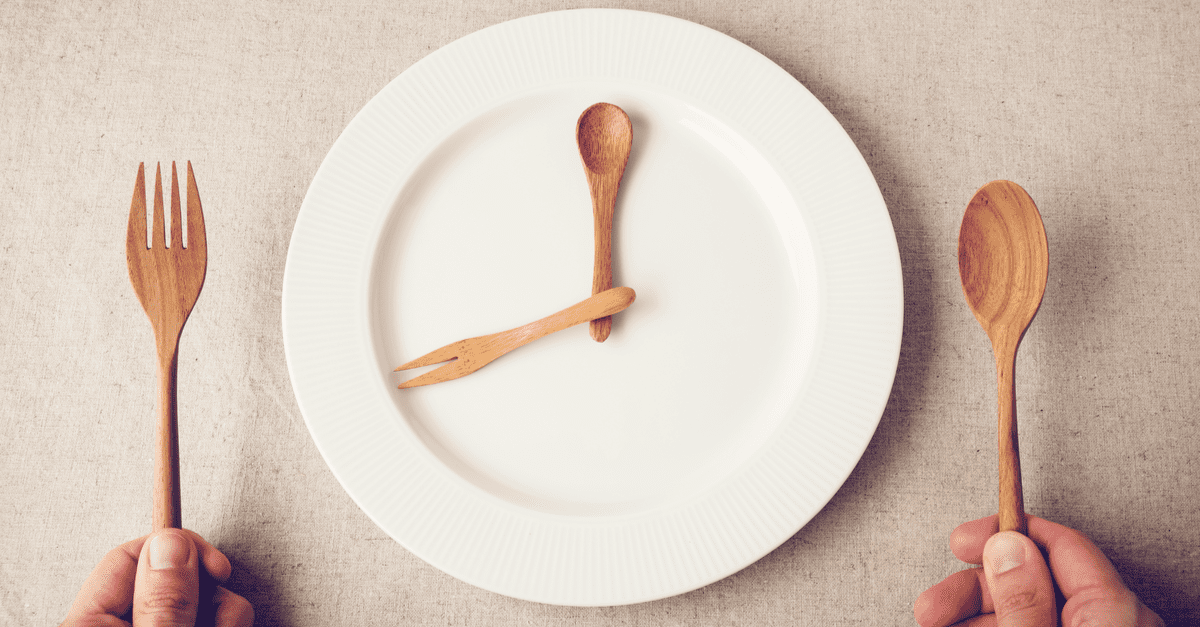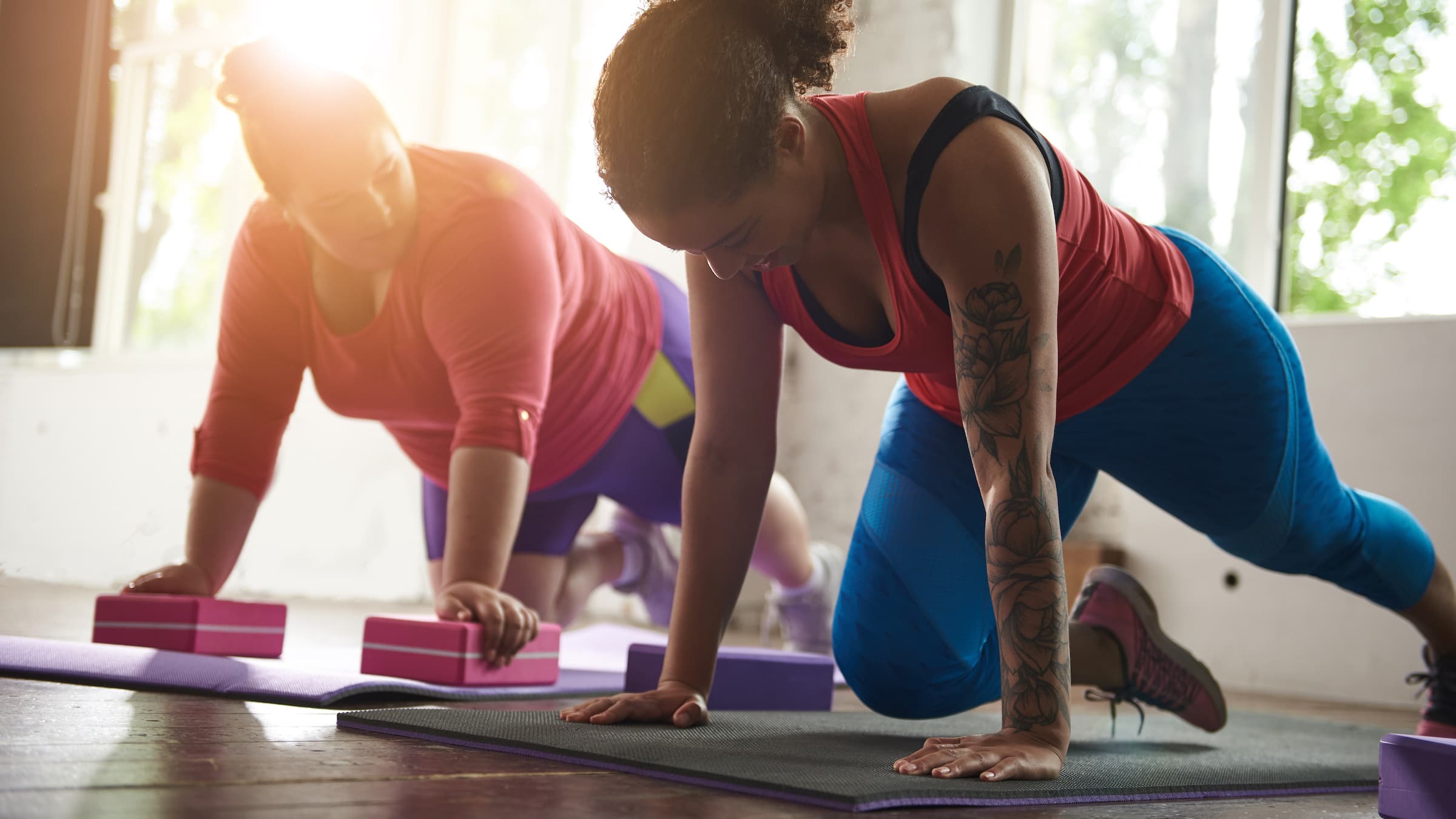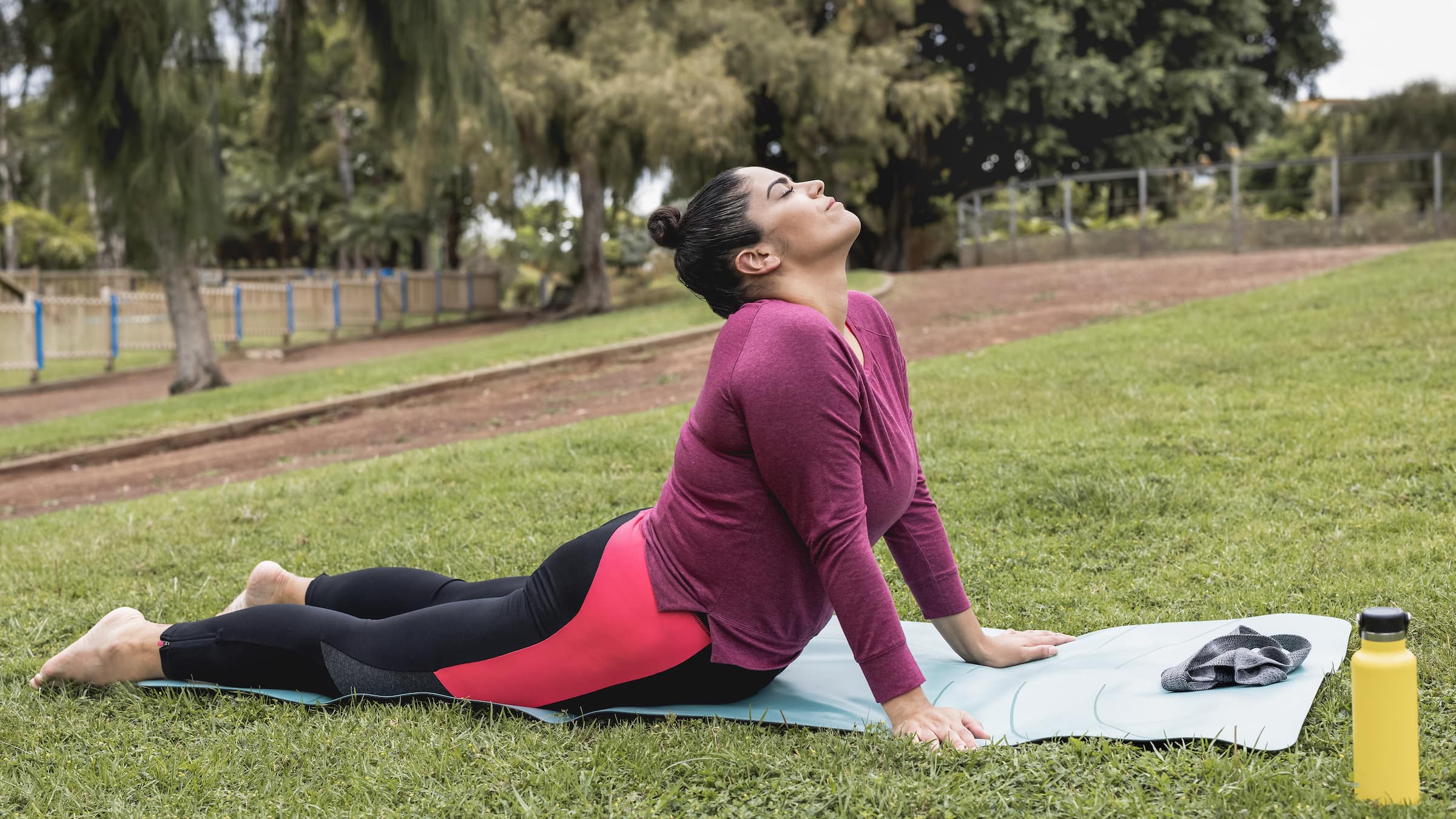What you’ll learn:
- Eating before exercise can enhance performance while eating after helps with recovery and muscle repair—both are crucial for weight loss and fitness.
- Pre-workout snacks should prioritize easily digestible carbs and protein for energy. Post-workout meals should focus on complex carbs and protein to replenish glycogen and promote muscle recovery.
- Listening to your body and timing meals around your workouts can optimize energy levels, promote fat loss, and support a sustainable weight loss plan.
You’re gearing up for a Zumba class, Pilates session, or strength training session—should you grab a snack now or wait until after your workout? The timing and composition of your meals can influence your energy levels, recovery, and performance. But when weight loss is your goal, does it really matter when you eat?
“When it comes to weight loss, the key is making healthy choices and staying mindful of your overall calorie intake,” says Kayla Reynolds. To shed pounds, you need to maintain a calorie deficit. From an energy balance perspective, it doesn’t matter whether you eat before or after exercise.
However, what you eat around a workout impacts your energy during your session and your recovery afterward. “Eating before exercise can fuel your performance while eating after helps your body and muscles recover,” explains Reynolds. Eating the right foods before and after a workout can support weight and fat loss while helping you build or maintain muscle.
Keep reading to learn the science behind fueling workouts, the benefits of eating before and after exercise, and how to choose the best pre- and post-workout snacks for your routine. When you’re ready to try a new workout or put together a plan, Noom has thousands of classes, programs, and challenges for every level.
Benefits of eating before exercise
Eating before a workout ensures your body has the energy to perform at its best. “Fueling up before a workout can boost your performance, enabling you to run farther, cycle faster, or lift heavier, or complete extra reps,” explains Reynolds. Providing your body with the right nutrients before exercise enhances performance and makes your workout more effective. Studies also suggest that eating before exercise, particularly protein, may increase calorie burn.
Tip for pre-workout snacks:
- Timing: Eat about two hours before exercise to allow for digestion.
- What to eat: For quick energy, opt for fast-digesting carbs with some protein. Examples include a banana with peanut butter, Greek yogurt with fruit, or oatmeal.
- What to avoid: Eating high-fat or high-fiber foods too close to a workout could cause discomfort.
“It’s also helpful to consider the intensity and duration of your workout,” says Reynolds. “If you’re taking a short walk or doing a gentle 20-minute yoga session, you may not need a dedicated pre-workout snack”. If you’re working out first thing in the morning, you might also choose to skip a snack.
Tip: Be sure to track your snacks and workouts in Noom to see whether eating certain foods before exercising impacts your performance.
How long should I wait after a meal to exercise?
As a general rule, waiting about two hours after eating is sufficient, but if you’ve had a larger meal or have a strenuous workout planned, three to four hours might be a better choice.
Real results with a personalized weight loss program
Take the quiz!

Here’s a quick guide:
- Light meals or snacks (e.g., simple carbs): Wait 30–60 minutes.
- Medium to large meals (e.g., protein-heavy or bigger portions): Wait at least one to two hours, more if you still feel full.
The exception? While intense exercise after a large meal isn’t recommended, light activity—like a 10-minute walk—can be beneficial. Gentle movement after eating can improve digestion and help regulate blood sugar.
Ultimately, your body knows best. If you feel sluggish, nauseous, or uncomfortable, give yourself more time to digest. Tuning into your body and timing your meals right can maximize your exercise and recovery.
Benefits of eating after exercise
Post-exercise meals are vital for replenishing glycogen stores, repairing muscles, and promoting recovery. “Eating after a workout helps your body recover faster and can support muscle growth and fat loss,” says Reynolds. Aim to eat within 30–60 minutes of finishing your workout for optimal results. Studies show that getting the right balance of nutrients can improve recovery, boost overall health, and enhance performance—especially when tailored to your unique needs and workout routine.
What should I eat after exercising?
Post-workout meals should prioritize a balance of carbohydrates and protein to support muscle repair and recovery. While fats are less critical immediately after exercise, they can be included in a balanced plate to support hormone production, nutrient absorption, and overall health.
If your goal is weight loss, aim to avoid post-workout snacks that are high in calories, sugar, or fat. For inspiration, Noom’s recipe tool is a great resource. Here are a few ideas to get you started:
- Protein smoothie with spinach and almond butter
- Chicken stir-fry with rice and vegetables
- Greek yogurt topped with fresh berries and granola
After high-intensity workouts like weight lifting or running, your muscles may require additional calories to recover effectively. If you’re still hungry, listen to your body and eat more to meet its needs. Skipping a post-workout meal or snack can lead to increased hunger later, making overeating or choosing less nutritious, high-calorie foods more likely.
Does it matter when I eat after exercise?
Eating within a strict “anabolic window” immediately after exercise was once thought to be essential for muscle recovery and growth. However, research suggests this window is more flexible. For the most part, it’s recommended that pre- and post-exercise meals are not separated by more than 3 to 4 hours.
If you eat 2 hours before a workout and then spend an hour at the gym, you should try to eat within an hour of finishing. That said, you should also consider personal preference and lifestyle or scheduling constraints in your timing and planning. The focus should be staying within your daily calorie range and consuming enough protein throughout the day.
Should I ever eat during exercise?
For workouts lasting less than 60 minutes, eating or drinking anything beyond water is typically unnecessary.
“If you’re exercising for over an hour and more intensely, it can be helpful to fuel with carbs throughout,” says Reynolds. High-intensity workouts or endurance training, for example, a long run or cycle, may require a mid-workout energy boost to maintain blood sugar levels. Easy-to-consume options like a sports drink, energy gel, or banana are often ideal.
Pay attention to your body’s signals. If you start feeling overly hungry or lightheaded during exercise, take a break to eat something light before continuing.
Are there benefits to working out fasted?
Exercising on an empty stomach—typically in the early morning—might offer some unique benefits for weight loss.
Some research shows that exercising before eating might help your body burn more stored fat. When your body is in a fasted state, it has lower glycogen stores and may turn to fat quicker for energy. More studies are needed to understand fully how working out without eating impacts performance and metabolism in the long term.
If you’re planning a morning workout, be sure to drink water beforehand and listen to your body. Feeling dizzy or lightheaded could indicate low blood sugar, and it’s best to stop and eat something in those cases. Chat with your doctor if you notice any issues while exercising.
Eating beforehand is a better choice for longer or more intense workouts to ensure sustained energy. “If you’re exercising midday or later in the day, you definitely need to eat,” adds Reynolds.
Finding the best timing for your weight loss journey
Ultimately, the best approach depends on your personal goals, preferences, and routine. Experiment with pre- and post-workout snacks, track how they affect your performance, weight loss, and body composition over time, and adjust as needed. Noom’s tools can help you find the balance that works for you by offering personalized calorie budgets, macro goals, recipe suggestions, and habit tracking.
With Noom, you’ll learn how to fuel your workouts and recovery without derailing your progress. By staying mindful, consistent, and aligned with your goals, you’ll build a sustainable lifestyle that leads to lasting change.




